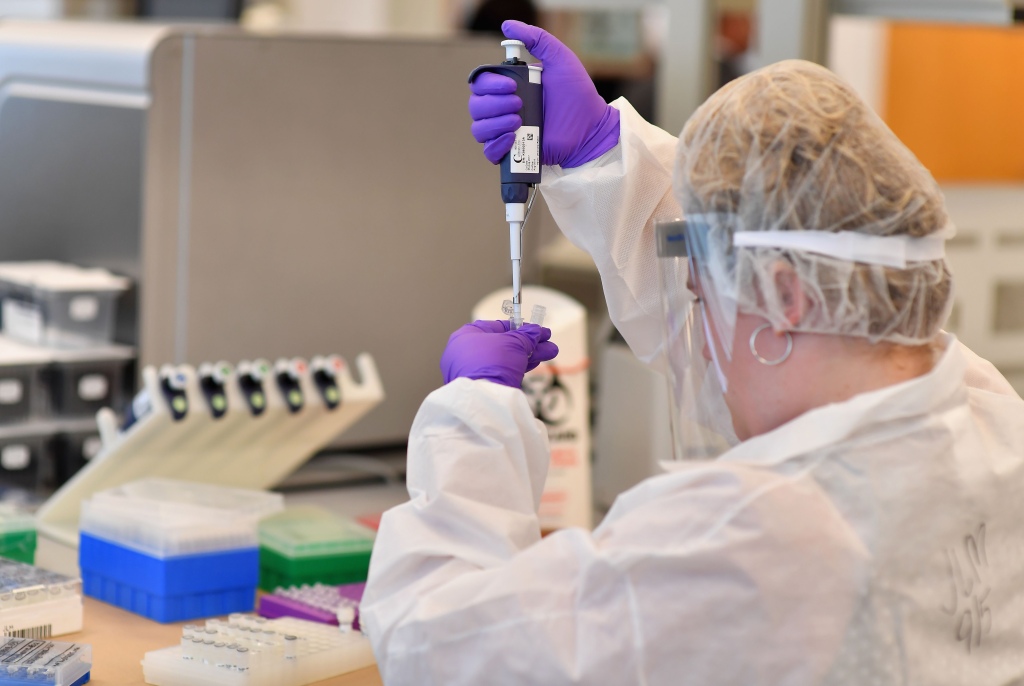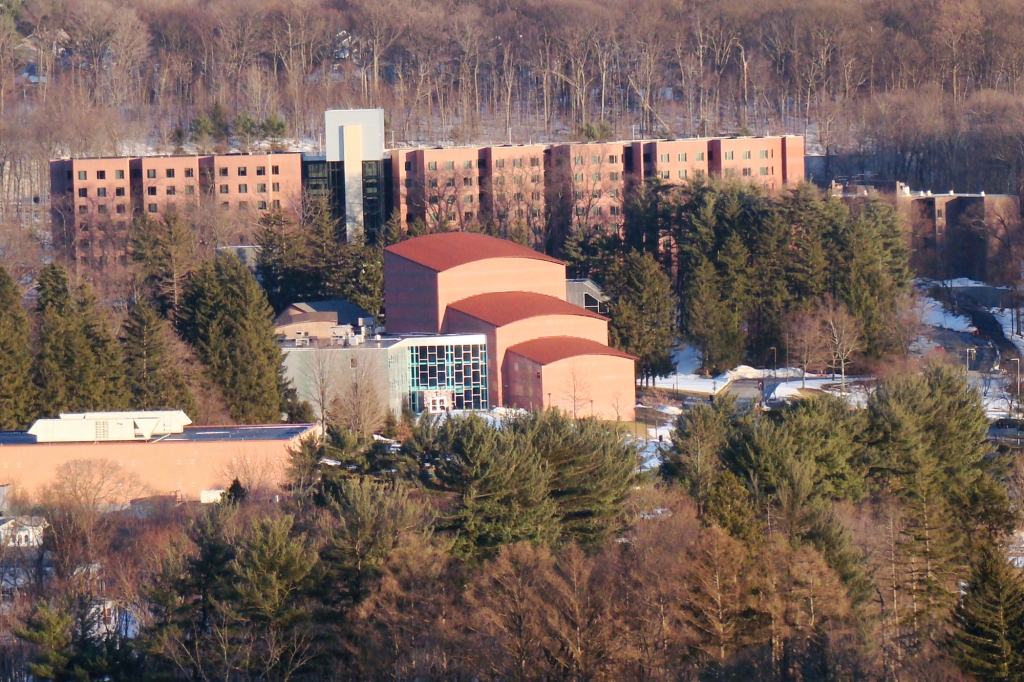How NJ college students helped crack a 21-year-old cold case
In 2002, a 60-year-old man used the named “Edward C.” to check into a squalid motel in an Arizona border town ahead of a scheduled surgery in Mexico. But he never checked out.
His remains were found on Sept. 8, 2002, inside the rented room in Nogales, Arizona. Although his fingerprints were recovered, authorities were unable to formally identify the man, who had listed an address in Florida, and he was unceremoniously interred as “Nogales John Doe.”
Now, two decades later, a group of 19 students at Ramapo College of New Jersey have used genetic genealogy to assist Arizona authorities, ultimately cracking the case late last month, school officials told The Post.
By analyzing unique patterns on DNA from a blood sample, Ramapo students identified the man as Donald Sigurd Hadland Jr., a 60-year-old who had ventured hundreds of miles from his New Mexico home to save money on a medical procedure.
Ramapo, a public liberal arts college in Mahwah, launched its remote Investigative Genetic Genealogy program in January, offering a 15-week, non-credit course to teach “beginning to end” forensic evidence skills for $6,000.
“What the students did was look at the genetic matches from his DNA profile that was developed to see if those were consistent with the family relationships of Mr. Hadland,” Ramapo’s Cairenn Binder told The Post. “So going in, we had an idea who it might be, so we were looking to see … did the genetic matches fit the family tree for this individual.”
The Ramapo College of New Jersey Investigative Genetic Genealogy Center dug into the unsolved case in collaboration with the DNA Doe Project, a nonprofit that has identified more than 65 previously unnamed victims since 2017. The Pima County, Arizona, Office of the Medical Examiner sought help from the groups earlier this year, Binder said.
The original police investigation had gotten confusing when “Edward C.,” the name used by the man found in the seedy motel, was linked to identity theft and fraud in St. Petersburg, Florida, where he had said he was from.

A fingerprint search led to Donald Hadland — but investigators couldn’t determine if that, too, was a fake name.
DNA analysis from the extracted blood sample enabled Ramapo students to develop a profile of “Nogales John Doe” in the GEDmatch genealogy database.
Since they already had a lead thanks to the fingerprint, students examined matches from the “Nogales John Doe” DNA profile and found “some fairly close relatives” who were consistent with Hadland’s family tree, Binder said.

“We call it an investigative lead,” she continued. “When we come up with the identity of a person based on their genetic matches, we hand that over to the medical examiner and that was done in early May.”
That led investigators to Hadland’s ex-wife, with whom he had a son, Pima County forensic anthropologist Bruce Anderson told the Sacramento Bee. The woman told authorities she hadn’t seen Hadland since the late 1980s when he left the pair, he said.
The profiles of Hadland’s son and two grandsons — which the trio released to the genealogy database — confirmed the man found in the Nogales motel was Hadland.

“It could’ve been that both Edward and Donald were false identities used by this person,” Binder said. “It could’ve been anybody, but once we looked at the DNA matches, we knew it was Mr. Hadland.”
Hadland died from an accidental opioid-barbiturate overdose, Pima Country officials confirmed to The Post. Attempts to reach his relatives were unsuccessful.
Binder, who directs the IGG certificate program, said the Ramapo team built out Hadland’s family tree using the GEDmatch.com genealogy database — the same method which helped investigators track down the notorious “Golden State Killer” in 2018, decades after Joseph James DeAngelo raped and murdered women across California.

GEDmatch.com allows users to upload their DNA profiles in hopes of finding potential relatives, pulling genetic data from other popular genealogy platforms like Ancestry, 23andMe or Family Tree DNA.
Binder, an investigative genetic genealogist, runs the program with David Gurney, an assistant professor of law and society who directs Ramapo’s Investigative Genetic Genealogy Center. The two both have ties to Pima County, where authorities are currently investigating more than 1,200 unidentified remains cases, she said.
As of Friday, the Investigative Genetic Genealogy Center at Ramapo College is probing more than 25 other cases, including a man found dead in April 2006 at the base of a cliff in Fort Lee, New Jersey. The victim, believed to be 44 to 64 years old, was 5 feet 9 inches tall with sandy brown/blonde hair.

The majority of IGG’s investigations focus on unidentified victims since cases involving violent crimes in which a suspect is being sought, and therefore cannot be publicized. A fresh batch of 40 students will start in the fall, Binder said.
Traci Onders, 55, who finished Ramapo’s program in May, now works as an investigative genetic genealogist for Advance DNA in Cleveland, Ohio. She previously spent seven years tracking down biological parents in adoption cases.
“One of the things that I think is very similar is the sense of ambiguous loss,” Onders said. “People that don’t know where their relatives are. And that’s what genetic genealogy does for people. We hope this gives some type of closure or some idea of what happened. But it’s never news you want to get.”
Read the full article Here


